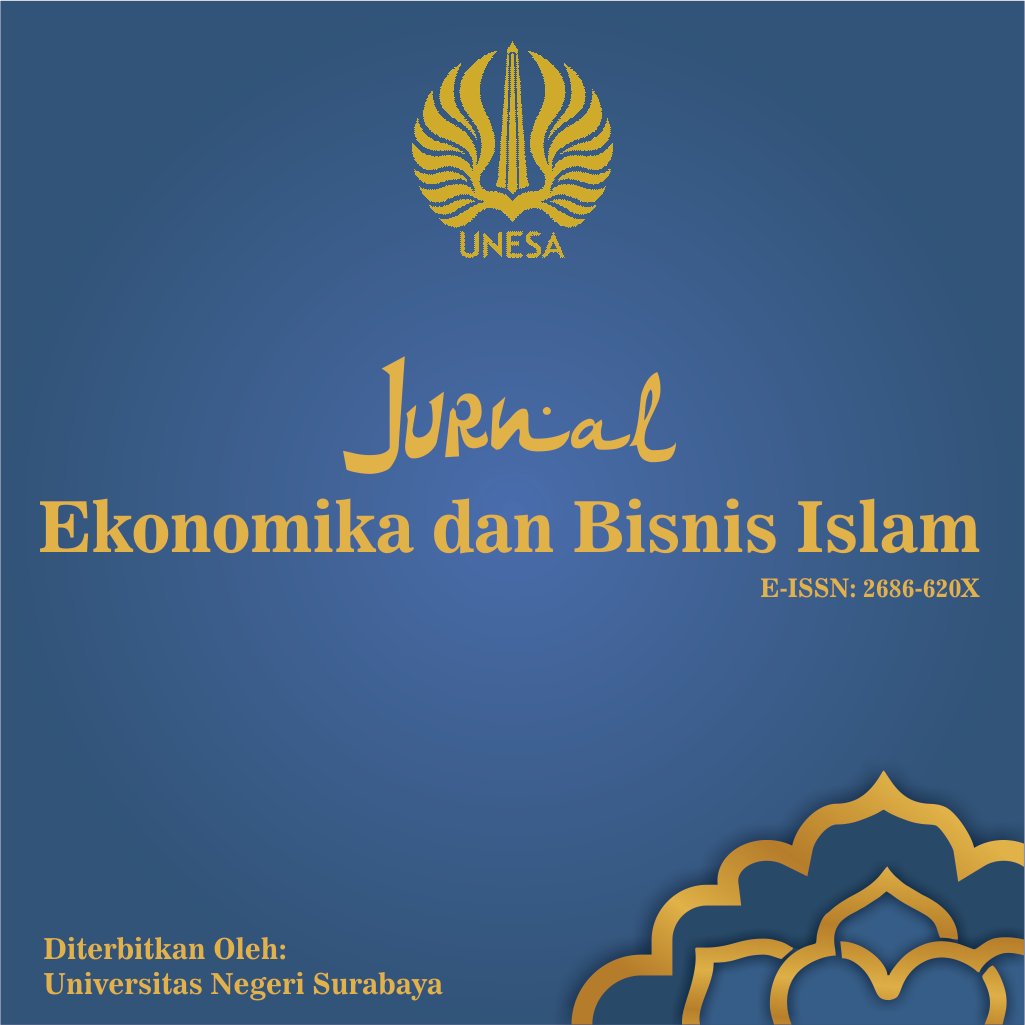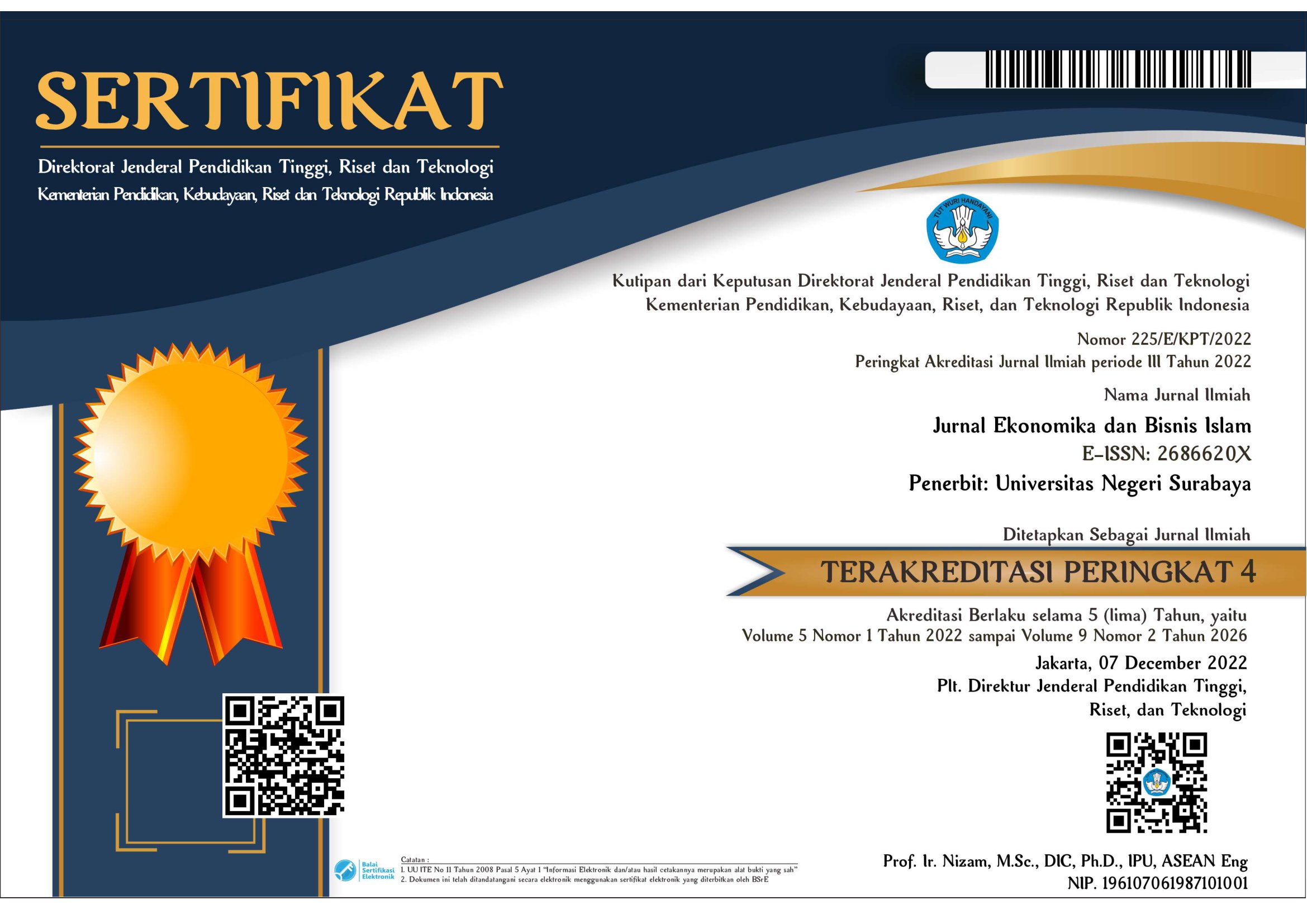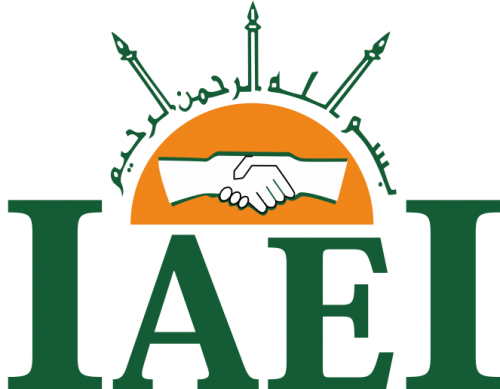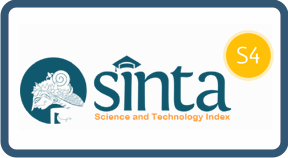Pemahaman Santri Griya Khadijah Terhadap Wakaf Produktif Dengan Pendekatan Taksonomi Bloom
Keywords:
Understanding of productive waqf, Santri, Griya KhadijahAbstract
This study aims to determine the level of understanding of Griya Khadijah students towards productive waqf in order to evaluate learning and formulate strategies in producing competent human resources. This research uses a qualitative approach with descriptive methods. The data collected came from direct interviews with all Griya Khadijah students, totaling 22 people and from documents at the end of semester exams for productive waqf subjects at Griya Khodijah Puspas Unair. In terms of analyzing, this study uses the revised version of Bloom's taxonomy understanding theory in the cognitive realm, which includes interpreting, exemplifying, classifying, summarizing, inferring, comparing, and explaining. (explaining). As well as analyzing understanding based on its level, namely high level or exploration; moderate level or interpretation; and low level or translation. As a result, five of the seven indicators show an exploratory understanding which proves that on average Griya Khadijah students have a high understanding of the concept of productive waqf. However, understanding is still not completely perfect. Griya Khadijah Santri are still at an intermediate level of understanding on measurements with interpreting and exemplifying indicators, so that more learning focus is needed on these two indicators.
References
Baskoroputra, G. F. 2019. Analisa Tingkat Literasi Wakaf Uang dan Pengaruhnya Pada Persepsi Wakaf Uang (Studi Kasus Pada Mahasiswa Ekonomi Islam Universitas Brawijaya). Jurnal Ilmiah Mahasiswa FEB, 7(2).
Charities Aid Foundation World Giving Indeks 2021. https://www.cafonline.org/about-us/publications/2021-publications/caf-world-giving-index-2021. Diakses 19/10/2022
Data Kemendagri. https://dukcapil.kemendagri.go.id/page/read/7/data-kependudukan. Diakses 28/11/2022.
Fiskal, B.K.(2019). Kajian literasi wakaf. https://fiskal.kemenkeu.go.id/analisis/kajian. Diakses 28/11/2022.
Hutagalung, R.2017. Peningkatan kemampuan pemahaman konsep matematis siswa melalui pembelajaran guided discovery berbasis budaya toba di smp negeri 1tukka. MES: Journal of Mathematics Education and Science, 2(2).
Jarrett, R. F., Thorndike, R. L., & Hagen, E.1956. Measurement and Evaluation in Psychology and Education. In Journal of the American Statistical Association (Vol. 51, Nomor 275). https://doi.org/10.2307/2281462
Machmud, A. I., & Suryaningsih, S. A.2020. Analisis Tingkat Literasi Wakaf Uang Mahasiswa Fakultas Ekonomi Universitas Negeri Surabaya. Jurnal Ekonomika dan Bisnis Islam, 3(3), 165-179.
Murniayudi, H., Mustadi, A., & Jerusalem, M. A.2018. Reciprocal teaching: Sebuah inovasi pembelajaran abad 21 untuk meningkatkan pemahaman konsep mahasiswa PGSD. Premiere Educandum : Jurnal Pendidikan Dasar dan Pembelajaran, 8(2), 173. https://doi.org/10.25273/pe.v8i2.3308
Muslim Population by Country.2023. World Population Review. https://worldpopulationreview.com/. Diakses 28/11/2022.
Ningsih, Y. L.2016. Kemampuan pemahaman konsep matematika mahasiswa melalui penerapan lembar aktivitas mahasiswa (LAM) berbasis teori APOS pada materi turunan. Edumatica: Jurnal Pendidikan Matematika, 6(01).
Ramadhani, A.2021. Analisis Tingkat Pemahaman Pedagang Muslim Pasar Parang Tentang Riba Perbankan. IAIN Ponorogo.
Charities Aid Foundation World Giving Indeks 2021. https://www.cafonline.org/about-us/publications/2021-publications/caf-world-giving-index-2021. Diakses 19/10/2022
Downloads
Published
How to Cite
Issue
Section
License
Copyright (c) 2023 Haryansyah Setiawan, Sunan Fanani, Eko Fajar Cahyono

This work is licensed under a Creative Commons Attribution 4.0 International License.
This work is licensed under a Creative Commons Attribution 4.0 International License.
 Abstract views: 415
,
Abstract views: 415
, PDF Downloads: 483
PDF Downloads: 483














